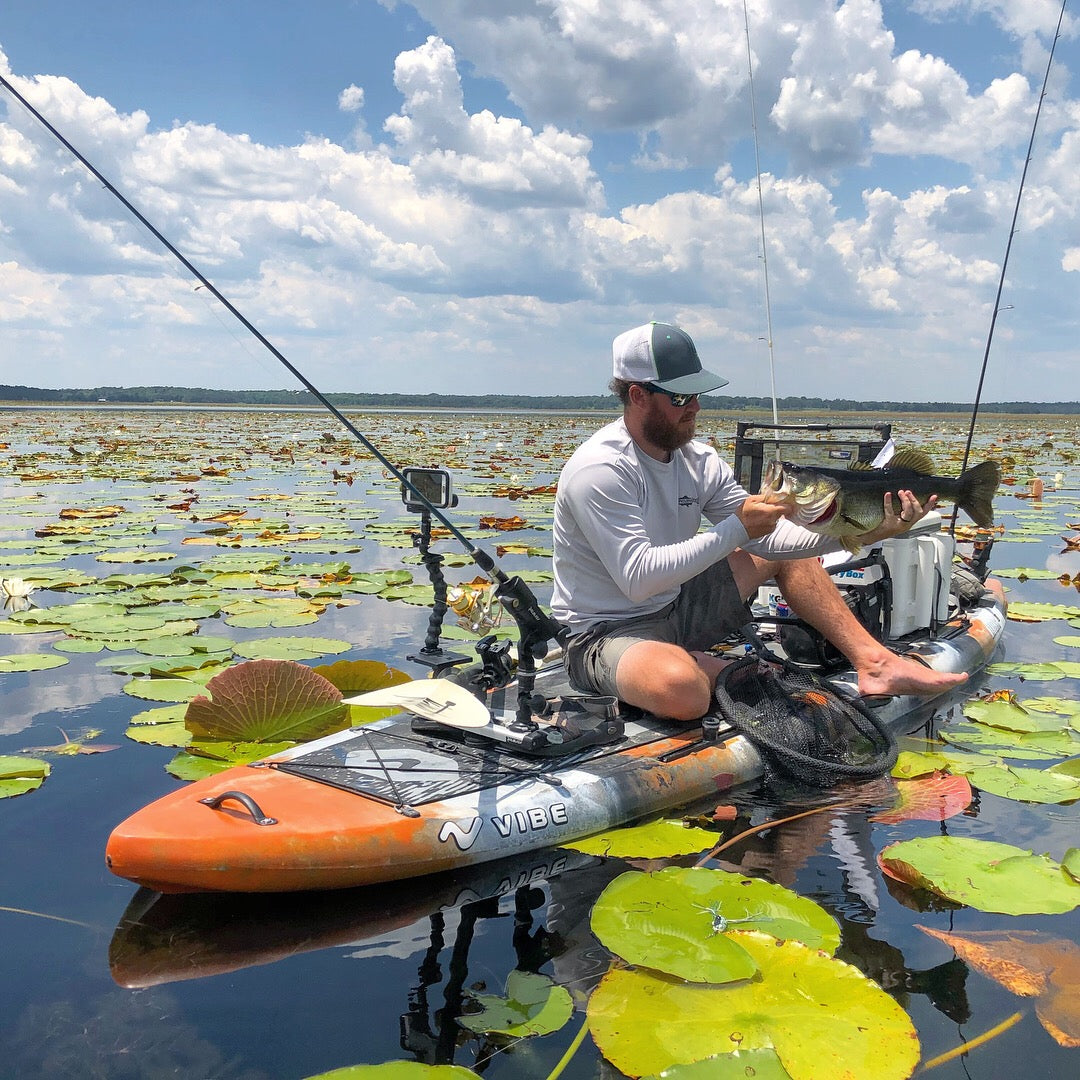Kayaks are great tools for fishing. They can help you explore new fishing areas that receive less fishing pressure, and can potentially help you catch more fish. Whether you just purchased your first kayak or you're exploring new rigging solutions, this guide will help you to personalize your kayak for the most enjoyable experience possible while out on the water.
Anchors
Anchoring is an important way to effectively fish an area from a kayak. Kayak anchors come in a variety of shapes and sizes, and it's important to find the one best suited for your needs and the areas you plan on kayak fishing in. Winds, tides and currents all influence the position of your kayak. With fishing in mind, it's important to have the ability to stay in the area that the fish are holding to, whether it be a shoreline, a reef, submerged timber etc. - and not drift away because of the external factors mentioned above. This can be a tedious process, and ultimately results in less time fishing and more time adjusting your kayak. In this article we discuss the different styles of anchors used in kayak fishing so that you can choose the best anchor for your style of fishing. The YakGear Mushroom Anchor is a good choice for anglers who primarily fish calm, protected waters because it's less prone to snagging upon retrieval. If you are primarily fishing waters with moderate current and wind, then the YakGear Grapnel Anchor is a great choice. The Grapnel Anchor is a great all-around anchor for multiple environments, and it's collapsible so that it can be easily stored in your kayak. The Grapnel Anchor is available in two weights " 1.5 pounds, ideal for calm waters, and 3.3 pounds for other conditions. If you encounter a snag while trying to retrieve your anchor, the Grapnel Anchor will also allow you to break away from the snag using the Rock-Rig method shown
here. This technique can be used with the Bruce Claw, and required hardware is included in both YakGear Grapnel Anchor Kits. For kayak anglers who fish areas with strong currents and little to no wind protection, the YakGear Bruce Claw Anchor is the better option. This anchor is generally the favorite among coastal kayak anglers where strong winds and tides are a factor, as its plow-style method of grabbing the bottom offers the best hold for such situations. One of the great advantages of kayak fishing is that you can access shallow waters that most boats can't get to. If fishing shallow waters is your thing, we recommend using a YakStick. The YakStick allows you to silently anchor and doubles as a scaled-down push pole traditionally used on skiffs for sight-fishing shallow water flats. It can be used in both saltwater and freshwater applications. YakGear offers three different stake-out anchors - the original 6-foot Mud Stick and the Yak Stick Floating Anchor in 6-foot and 8.75-foot lengths. Kayak fishers should not overlook the YakGear Drift Anchor. A drift anchor is used not to hold you in place, but to control the rate at which you drift. This can be extremely valuable when fishing open bodies of water, deep or shallow. If you are drifting too quickly, which is common in large open bodies of water, then your bait/lure may be difficult to present naturally. Not only does the drift anchor help with bait/lure presentation, but it also allows you more time to fish a certain area, such as a deep reef, and not drift over it too fast.
How to Attach the Anchor to Your Kayak
Now that you have a better idea of the different styles of anchors used in kayak fishing, let's talk about ways to secure your anchor to your kayak. The most rudimentary way is by installing a YakGear Anchor Cleat to your kayak. You can install the cleat anywhere on your kayak. However, if you are kayak fishing in areas where current or winds are present, you should have your cleat installed at either the bow or stern of your kayak so you won't be prone to flipping. You can fasten the anchor to the cleat by using YakGear Nylon Diamond Braid Rope, and remember to use at least three times the feet of depth that you are planning on anchoring in. So, if you are planning on anchoring in 5 feet of water, your anchor line should be at least 15 feet. The YakGear Anchor Deluxe Anchor Trolley is a favorite anchor attachment method among kayak anglers. The anchor trolley is essentially a pulley system that allows you to fully adjust the position of your kayak depending on wind and current. You can attach the anchor line to the Anchor Trolley Triangle, included with the anchor trolley, and pull the anchor line along the side of the kayak from bow to stern. If you wish to face up wind/current, use the anchor trolley to pull the anchor to the bow of the kayak. Conversely, if you wish to face down wind/current, use the anchor trolley to pull the anchor toward the stern of the kayak. The anchor trolley comes in two variations, the Deluxe and Heavy Duty. What if you hook into the big one? The fish begins peeling line from the reel with no end in sight and the only option you have is to give chase to recoup some of your lost line. For this scenario, there's the YakGear Anchor Float Leash. This anchor allows you to give chase when the big one hits. The high-visibility orange float makes it easy to locate and retrieve your anchor when the fight is done.
